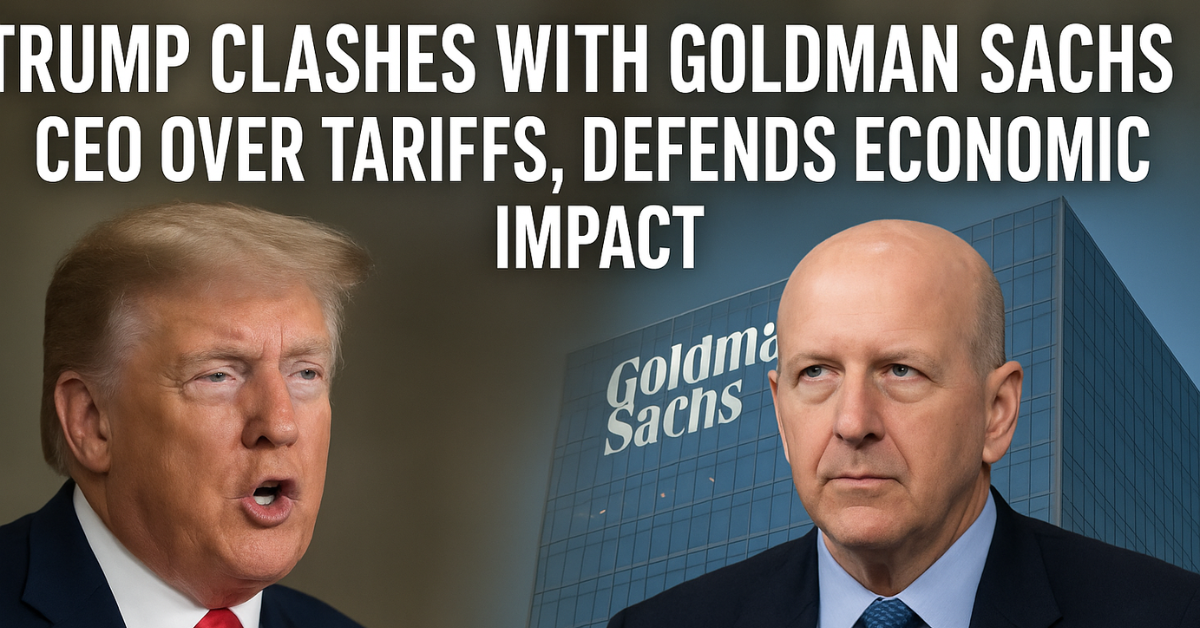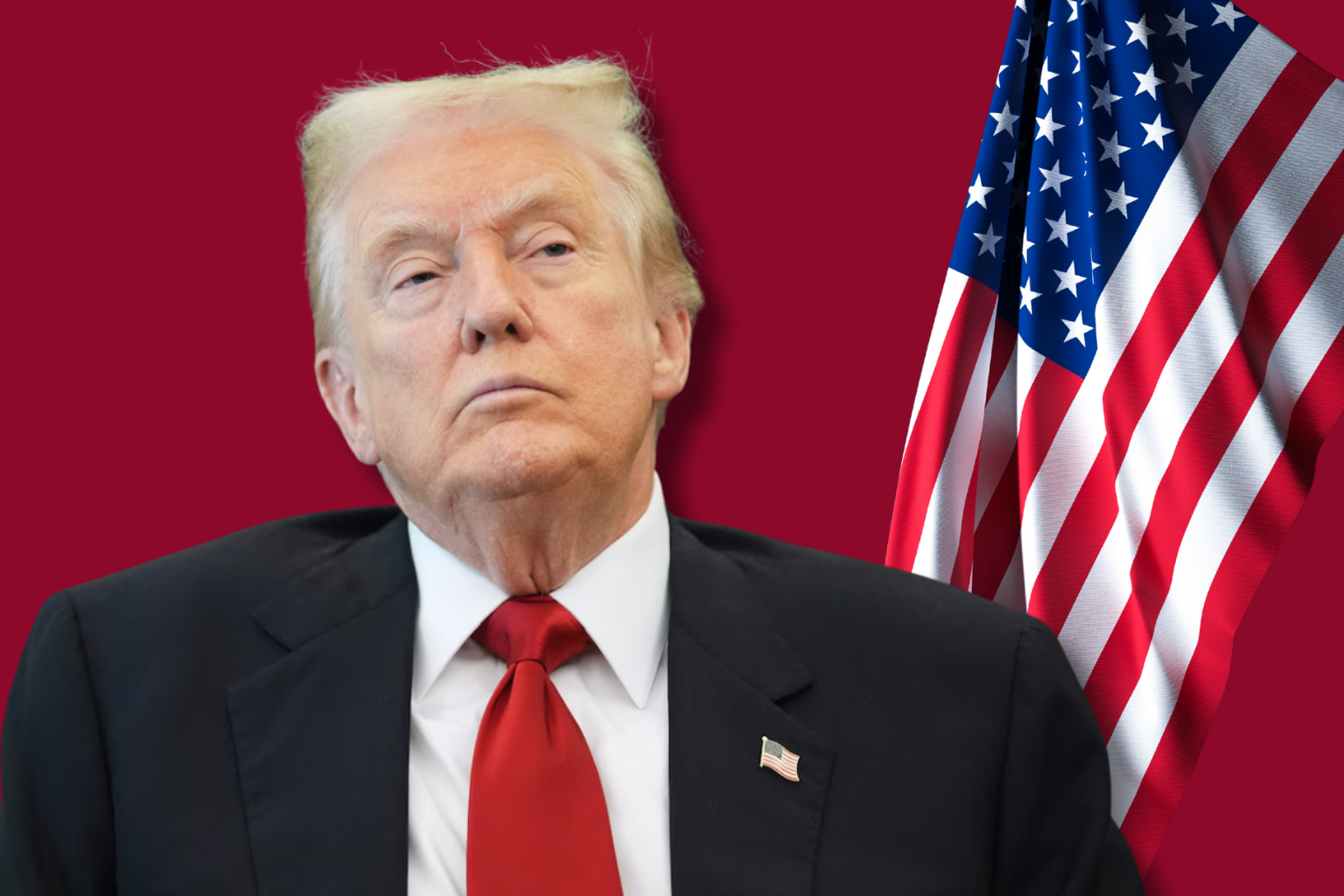Trump Clashes with Goldman Sachs CEO Over Tariffs, Defends Economic Impact

Trump Fires Back at Goldman Sachs CEO Over Tariff Criticism, Tells Him to “Stick to DJing”
Former President Donald Trump has launched a sharp counterattack against Goldman Sachs and its CEO, David Solomon, after the Wall Street giant released an economic forecast predicting that American consumers will shoulder a larger share of costs from Trump’s tariff policies.
Goldman Sachs economists recently warned in a new report that U.S. households are likely to bear a growing portion of the financial impact from the former president’s tariffs as they work their way through the economy. According to the report, consumers paid about 22% of tariff costs in June, but that figure could climb to 67% as more companies pass expenses on through higher prices. So far, businesses have absorbed roughly 64% of the costs, but the economists expect that number to fall below 10% in the coming months.
Trump took to his Truth Social platform to reject the bank’s conclusions and openly criticize Solomon, suggesting he should focus on his hobby rather than running one of the nation’s most influential financial institutions.
“I think that David should go out and get himself a new economist or, maybe he ought to just focus on being a DJ and not bother running a major financial institution,” Trump wrote.
The comment was a jab at Solomon’s well-known side career in music. Often performing under the name “DJ D-Sol,” Solomon has been active in the electronic and house music scene, collaborating with high-profile artists like Marshmello and Tiësto.
Trump Defends Tariffs as a Win for America
In the same post, Trump doubled down on his long-standing argument that tariffs have been overwhelmingly beneficial to the United States. He claimed that they have strengthened the stock market, boosted national wealth, and brought substantial revenue into the U.S. Treasury without harming consumers.
“It has been proven that even at this late stage, tariffs have not caused inflation or any other problems for America,” Trump insisted, adding that the financial burden is largely being shouldered by companies and foreign governments rather than U.S. households.
Inflation Data and Political Context
Not long before Trump spoke, the Bureau of Labor Statistics (BLS) released new data showing that inflation rose slightly in July but was lower than some experts had thought. The Consumer Price Index, which is a good way to measure inflation, went up 0.2% last month and 2.7% over the past year. It has been stable since June. Analysts noted, however, that certain sectors reflected the impact of tariffs.
This report marked the first inflation release since Trump removed Erika McEntarfer as the BLS commissioner earlier this month following what he called a “rigged” jobs report that showed weaker-than-expected hiring. He has since announced plans to nominate economist E.J. Antoni, a vocal critic of the bureau, to take over the role.
Impact on Wall Street and the Federal Reserve
The latest inflation data has added to investor expectations that the Federal Reserve may cut short-term interest rates in September. The central bank has held rates steady so far in 2025, citing a lack of significant economic disruptions from tariffs.
Trump, however, remains highly critical of Fed Chair Jerome Powell, whom he first appointed in 2017. On Tuesday, he accused Powell of acting “too late” on interest rate adjustments and suggested he may allow legal action to proceed against the Fed leader over renovations at the central bank’s headquarters.
“Jerome ‘Too Late’ Powell must NOW lower the rate,” Trump posted, claiming the U.S. economy’s strength has outpaced what he described as the complacency of the Federal Reserve Board.
The Economic and Political Stakes Are Rising
Trump’s latest fight with Goldman Sachs is more than just a battle of words; it shows how high the political and economic stakes are as the debates over tariffs, inflation, and interest rates heat up before important policy choices. Some people say that consumers will have to pay more for goods, but Trump keeps promoting tariffs as a strategic win that makes foreign businesses and governments pay their fair share while also increasing U.S. profits.
The next few weeks will show if Trump’s economic story matches up with predictions from some of Wall Street’s most powerful voices. Markets will be paying close attention, and pressure will be building on the Federal Reserve.
Sources
Goldman Sachs Economic Forecast Report (2025)
Truth Social Posts by Donald Trump (August 2025)
Bureau of Labor Statistics – Consumer Price Index Data (July 2025)
Federal Reserve Economic Policy Updates (2025)




